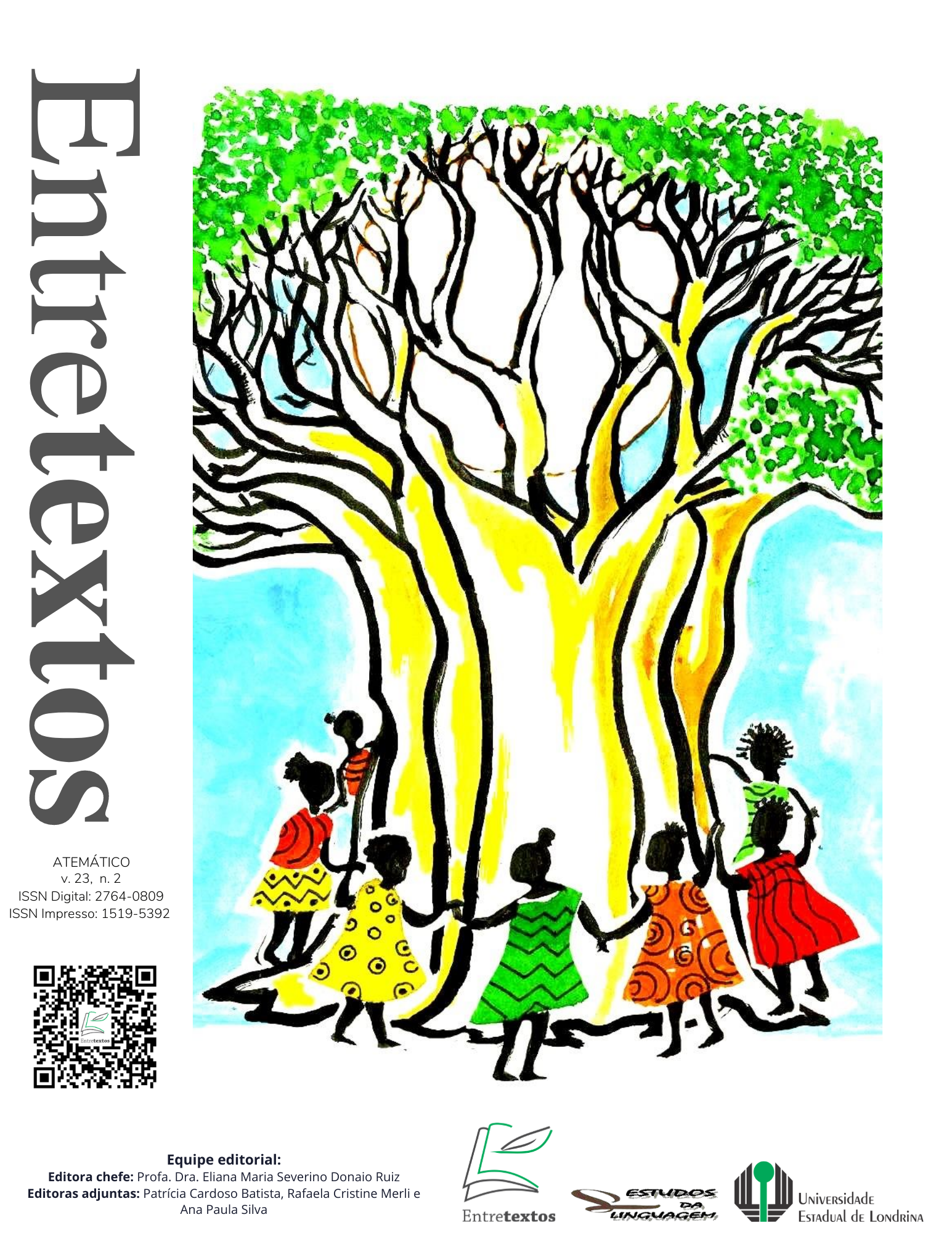
acesso aberto
Make a Submission
Language
Information
Keywords
Most read in the last 90 days
-
1462
-
520
-
364
-
279
-
261
Browse
Revista Entretextos
eISSN 2764-0809 ISSN 1519-5392
Universidade Estadual de Londrina
Portal de Periódicos Eletrônicos Científicos
Londrina -Paraná- Brasil
E-mail: entretextos@uel.br
 Licença Creative Commons Attribution CC-BY 4.0 International.
Licença Creative Commons Attribution CC-BY 4.0 International.

















